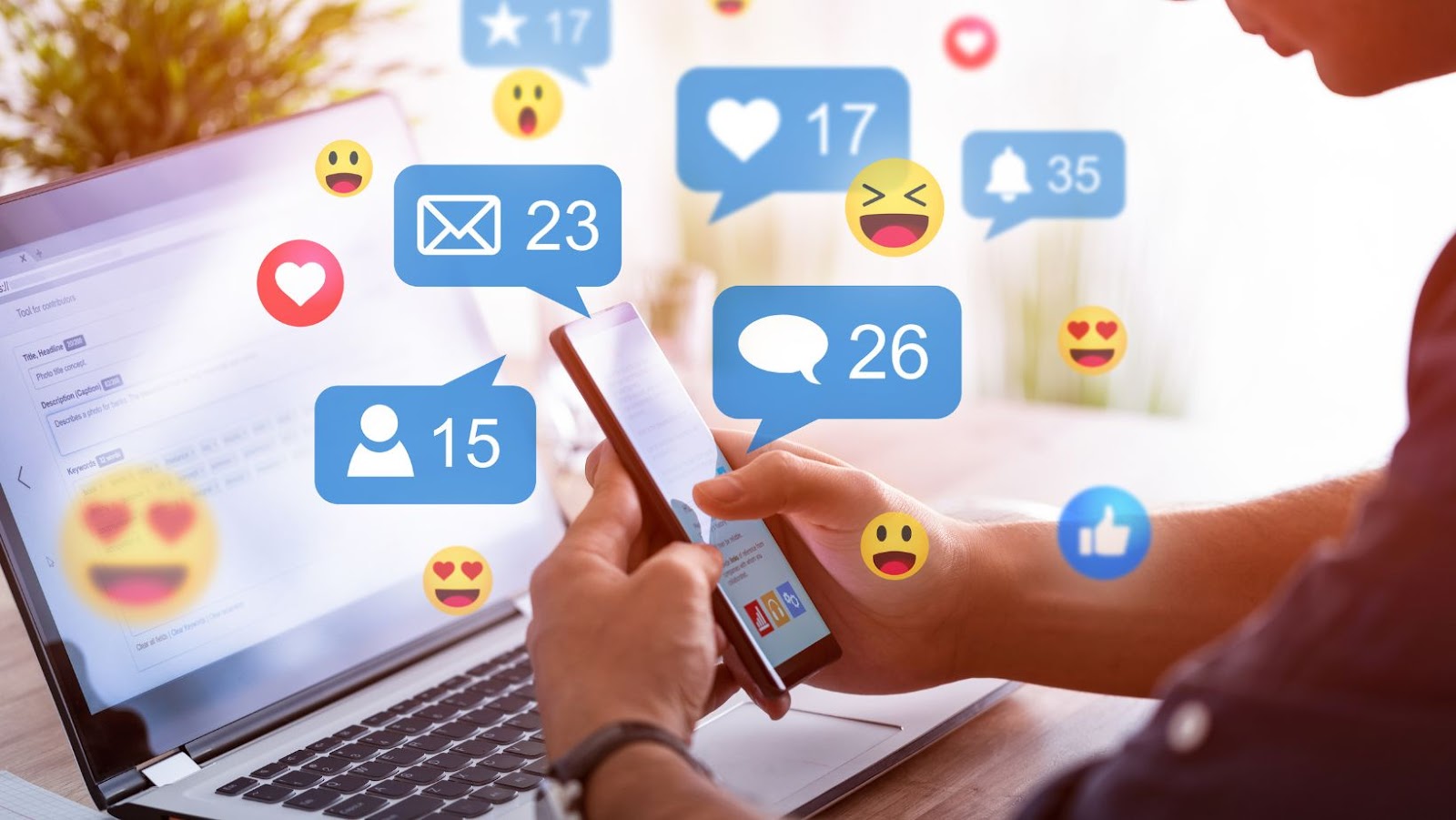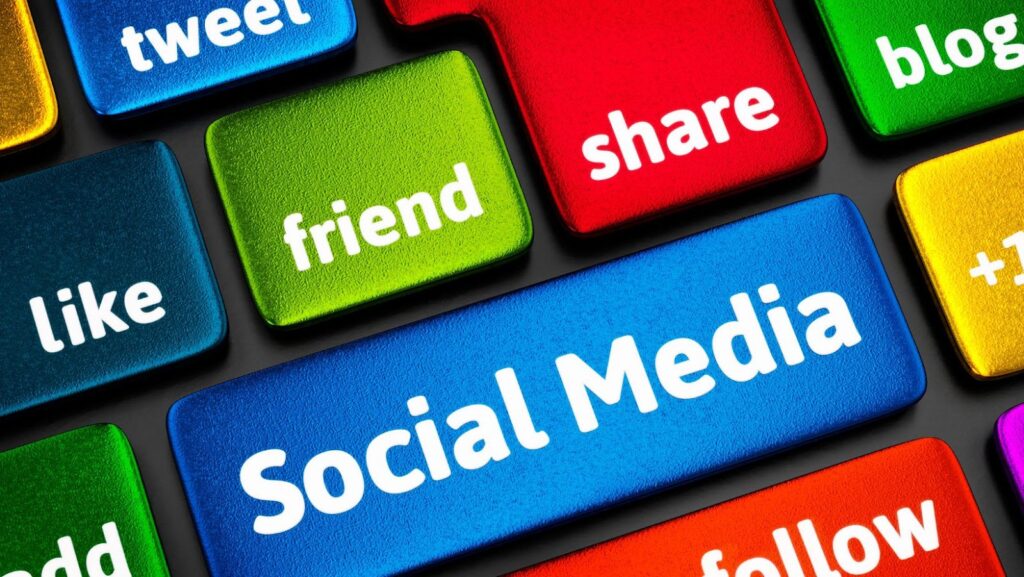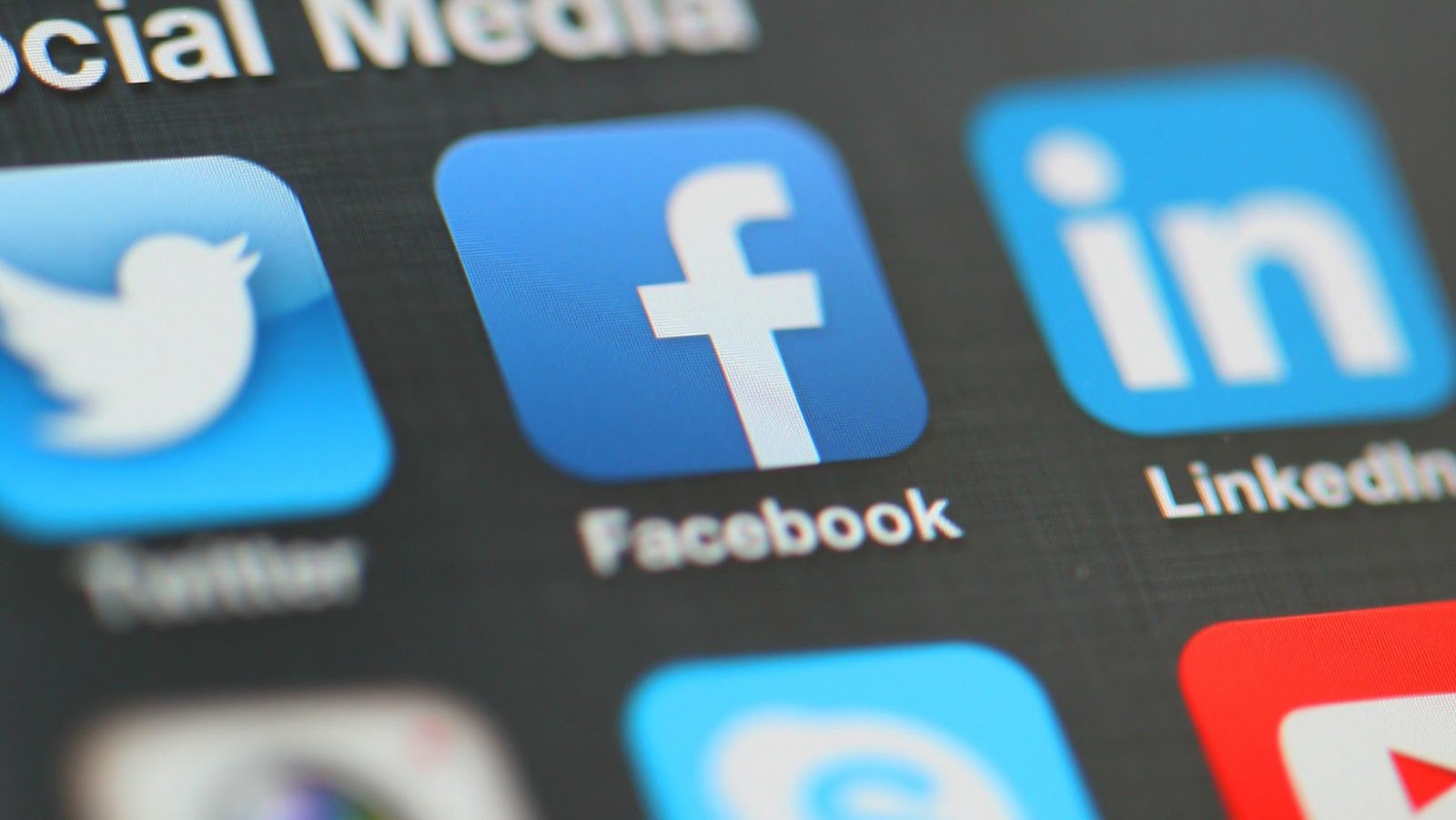Social media has become an integral part of our lives. We often check it multiple times daily, affecting our daily lives and relationships. So it’s no surprise that social media can know you better than your friends and family.
By understanding how this works, we can use it to our advantage and create better relationships.
Overview of Social Media
Social media is a term that encompasses many popular online services, such as Twitter, Facebook, Instagram, and YouTube. These tools allow users to share their thoughts and experiences with the world. In recent years, it has become an integral part of many people’s lives as it has become easier to stay connected with friends and family on a global scale.
The effects of social media on relationships can be positive and negative depending on how it is used. It has the potential to bring people closer together and make communication more efficient, but it also can tear apart relationships if it is not managed responsibly. Understanding these effects can help users make more informed decisions when using social media in their daily lives.
For instance, by promoting transparency in communication and making information available to anyone who wants access, social media can foster strong relationships between friends or family members if responsibility is taken when interacting online. On the other hand, if people feel compelled to maintain an active presence on social networks without considering feelings or actions of others involved in the interaction – conflicts may arise due to oversharing or lacking privacy protocols within digital networks. Additionally, feelings of envy may arise from unrealistic expectations created by influencers or after comparing yourself against peers through pictures or videos on social networks.
Overall, users of any age or background need to understand why they are using social networks before taking part in them – as this will help ensure everyone involved interacts responsibly while getting the most out of those connections online.
Why Social Media Affects Your Relationships
Social media has become increasingly popular over the last decade, with more people than ever spending time communicating with others via outlets such as Twitter, Facebook, Instagram and Snapchat. Although many people see social media as just a way to stay in touch with friends, it can have a much larger effect on relationships.
Firstly, it can be difficult for partners to maintain their own space in a world where social media is part of everyday life. Depending on the type of relationship and how open each partner is about their daily lives, this can lead to feelings of insecurity or suspicion if one or both parties is oversharing details about themselves or talking to other people too much.
Secondly, all communication forms carry a certain risk that information may be misinterpreted. This can lead to misunderstandings between couples and cause disagreements which might otherwise not have occurred without the influence of social media. The inability to adequately assess someone’s feelings through words can be exacerbated by posts and pictures online, leading to arguments before both parties can talk face-to-face.
Finally, while positive posts and interactions among loved ones can benefit relationships by showing public affection and support, negative posts may have an adverse effect. Unflattering comments or images available online could damage trust between partners and open potential roadblocks for conversations when resolving issues later on.
It’s important for couples who use social media to remember how their posts may affect each other and always strive for mutual understanding before responding negatively out of frustration – acknowledging that any communication made outside your relationship should be done only after both partners agree it’s okay first!
Social Media Knows You Better Than Your Friends and Family Do
Social media can have an impact on relationships, whether it’s with friends, family, or romantic partners. Social media sites use algorithms to track your interests and activities and can often collect more information about you than even your closest relationships. This can lead to different opinions, misunderstandings, and even disagreements.
In this article, we will discuss how social media can know you better than your friends and family do, and how this can affect your relationships:
Tracking Your Online Activity
In addition to the information you enter into your online profiles, social media tracking also collects data from your online activities. As a result, social media tracking is a form of “life logging”—keeping track of your every move and viewing patterns throughout the day.
Every time you log in or interact with any website, the companies behind those websites have access to certain information about you, such as what websites you visited, what kind of content you like or watch, and even who you know and meet in person.
Every time you visit a website or use an application on social media sites such as Facebook or Twitter, they create a database of everything they see that’s associated with your account. This database usually includes every article or post you read during each visit, any comments or likes that are associated with those posts or articles, as well as other data such as:
- when did this activity begin
- how long did it last
- how often is this user visiting the page or profile
- who are they talking to
- What content are they likely to click on?
All this information is collected and stored in databases, which can be mined for insights on behaviour and preferences.
Marketing firms can use the data collected through social media tracking to serve targeted ads that seem specifically tailored for each user. It can also be used for other purposes, such as cybersecurity analytics—detecting potential security threats by monitoring online users who show signs of malicious behaviour.
Collecting Your Personal Information
Social media sites, applications, and services actively collect and analyse users’ personal information to provide more relevant content. Such information includes your name and contact information, gender, location, device information (e.g., IP address), photos, videos, music preferences and interests, and activities such as what you search for online. All these data are connected online and cross-referenced to infer user behaviours and form a comprehensive profile.
Furthermore, the technology behind such sites has improved significantly over the years; the sites can now collect vast amounts of data extremely quickly. This has enabled them to gain a detailed understanding of their users’ profiles at an unprecedented rate. In addition to this most social media channels allow for integration with other sites so that it can access further personal data from various sources to better hone its targeting criteria; this involves collecting data from external sources which may include other websites visited by the user or offline searches complemented by advertising campaigns run on their platforms.
Unsurprisingly, we can see how social media can know us better than our friends and family members do, even acting as a digital equivalent of the people closest to changing our lives; delivering specific content tailored for us daily across platforms used within our daily life.
Targeting Ads
Organisations use various methods and data to target non-customers and customers with online advertisements. On social media networks like Facebook or Instagram, the company’s algorithm collects data on user behaviour, including age, gender, location, interests and messages sent. This information is then used to create custom ads specific to users to better engage with them.
The types of ads you see depend on the data the algorithm has collected from your interactions on the platform. For example, if you’ve been talking about how you want a new jeans jacket or shoes recently, these items may be advertised to you in posts from brands that specialise in them. In addition to being tailored specifically for you based on your past behaviour and preferences, these ads can also be specialised based on current trends or seasonality changes. Personalization occurs within Ads Manager by customising creatives and optimising bids or targeting options that are closely aligned with users’ interests or behaviours as identified through audience segmentation.

Ads targeting helps companies recognize who their customer base is to remain competitive within the market while still meeting their customers needs. Additionally, targeted ads can improve customer experience by providing content that is more driven towards their specific interests rather than more general subjects giving consumers relief from overall ad clutter making it a win-win situation for companies and users alike on social media platforms.
How Social Media Impacts Your Relationships
Social media has a major impact on our relationships, and it can be both negative and positive. Social media can be a powerful tool to stay in touch with friends, family, and even strangers, but it can also lead to feelings of disconnection and insecurity.
In this article, we’ll explore how social media can affect your relationships, from how it can make you feel closer than ever to how it can invade your privacy and lead to feelings of jealousy:
Lack of Face-to-Face Interaction
Unfortunately, social media can cause relationships to suffer if it isn’t used responsibly. Too much time on social media can lead to a lack of face-to-face interaction with romantic partners and family members. This can negatively impact relationships as communicating via text, online comment sections, and direct messages may lack the warmth and ease of an in-person conversation.
In addition to communication styles, physical contact is essential in any relationship as it contributes to feelings of intimacy and connection. However, being together digitally or virtually through a video call or playing a game over the internet can prove difficult to emotionally reconnect with loved ones due to the disconnection from physical contact.
Another issue that often arises from heavy reliance on social media for communication is comparison and competition within relationships. From posts about carefully curated highlights from each person’s day or life events such as engagements, pregnancies or vacations; these platforms can fuel comparison between individuals which quickly destroys connection in any relationship. In addition, seeing something positive happen in someone else’s life may spark feelings of jealousy or resentment which are toxic emotions that could lead people away from their partners rather than towards them. Furthermore, people tend to share their most impressive achievements over social media, which makes them feel pressured into measuring themselves against someone else’s best moments instead of focusing on their inner growth or relationships at home.
Ultimately, when used responsibly, social media has limitless potential for connecting us with those we care about both near and far away but if not kept in check it can end up damaging our most important relationships in life by undermining our capacity for meaningful face-to-face interactions.
Comparison of Lives
Regarding relationships and how social media affects them, it helps to directly compare our perception of our own lives and those we follow online. Humans naturally compare themselves to others—this is just one component of how we evaluate our self-worth. By comparing ourselves to what appears online, it’s easy for us to become envious, creating a distancing effect that can harm your relationships.
Understanding how you may be comparing yourself is key in helping you better manage the effects of social media on your relationships. We often look at what appears to be perfect lives, but the “highlight reel” is not reality—for each person on platforms such as Instagram or Facebook, many moments don’t exist in their post history. This unspoken discrepancy contributes to why focusing too much on other people’s lives can create anxiety and unhappiness in our own lives.
Undoubtedly, engaging with friends and family online can be beneficial for relationships. It allows us to keep up with what is going on in the lives of those we care about—we can navigate situations more effectively due to shared knowledge. But it needs more than just a few posts or chats here and there if you want real connection; healthy bonds take time and thoughtful conversations offline, in person.
Miscommunication
Miscommunication is a common problem that can occur when communicating over social media. People use different methods and language to express their thoughts, opinions, and emotions which can often lead to misunderstandings.
For example, when conversing in person there are body language cues such as facial expressions, hand gestures and posture that can help comprehend another person’s feelings or what they mean.
In contrast, when communicating over social media people tend to be more guarded because they don’t have the luxury of non-verbal communication tools. As a result, people may sometimes type things without considering the effects of their words on another person’s feelings or make assumptions without asking questions or clarifying points. This type of conversation leads to confusion or disconnection between you and your partner.
Additionally, longer pauses can lead the other person to feel ignored or abandoned over the conversation which could have a long-lasting impact on the relationship. Finally, miscommunication is even more likely when interacting with strangers via social media as mutual understanding may not always be established correctly.

Everyone needs to be mindful about choosing our words carefully whenever we communicate online to avoid these types of situations from occurring:
- Be aware of your partner’s feelings.
- Take the time to ask questions and clarify points.
- Avoid making assumptions.
- Be mindful of pauses in the conversation.
- Establish mutual understanding with strangers.
Tips for Balancing Social Media and Relationships
Social media can be a great way to stay connected with friends and family, but it can also cause tension and confusion in relationships. With social media knowing our interests and taking the time to create tailored content just for us, it can sometimes feel like it knows us better than those closest to us.
To keep a healthy balance between social media and our relationships, it’s important to understand technology’s effects and how to use it responsibly. So let’s explore some tips for balancing social media and relationships:
Set Boundaries
Establishing boundaries when it comes to using social media in a relationship is important. Discuss with your partner how you’ll use social media and find a balance that works for both of you. Establish which forms of communication are preferable and when it’s best to turn off your phones or devices and spend quality time together away from the social media world.
Be mindful of what content you post online. Displaying too much PDA, sharing too many intimate details or talking badly about each other will only create issues between you two. Even if your intentions are good, think twice before posting something since it can bring negative consequences down the road.
Agree on some ground rules for how often you’ll use social media, including limiting interactions with people who might be involved in third-party relationships like an ex-boyfriend or an ex-girlfriend, former coworkers, etc. Both individuals should agree not to read each other’s private messages without permission.
- Respect each other’s time on their platforms and your collective need for privacy.
- Embrace the full range of expressions without completely walling one another off from technology.
Be Mindful of Your Online Activity
It is important to be mindful of how much time you spend on social media and the kinds of content you post. The more time you spend talking to people online, the less time you may have for interacting with people face-to-face. If you become more dependent on your devices, set limits on how long you can be online.
In addition, avoid engaging in activities such as bullying or participating in gossip. These types of activities can damage your relationships and cause distress in people’s lives. If you don’t want someone else to speak about you that way, it’s best to not participate in similar behaviour yourself. Instead, look for ways to show kindness towards others or spread messages and content that uplifts people. This will help maintain respectful relationships both online and off.
Make Time for Face-to-Face Interaction
Taking the time to interact with those you care about face-to-face can help to strengthen the connection between you. Not only does this allow you to express yourself and your emotions without the intermediary filters of technological devices, but it also gives you an opportunity to connect more intimately.
A simple phone call, a lunch date or walk around the neighbourhood can foster deeper conversations and create better understanding than interactions through social media alone. We all require physical contact and connection at different points in our lives and prioritising this type of relationship building is essential for a healthy and balanced lifestyle.
Conclusion
Now that we have explored the effects of social media on relationships, it is important to remember that using social media does not determine the outcome of our relationships. It is only a tool and can be used positively and negatively. While it can be an important source of connection and communication, it must be used responsibly and cautiously.
With this in mind, we must always consider how our online behaviour may affect our relationships with those offline. Therefore, it is essential to listen to yourself and those around you so that your interpersonal relationships are nurtured in a healthy way. By doing so, you can ensure that your online presence will continue to help build bridges with friends, family, co-workers, businesses or whatever other online community you connect with – rather than tear them down.
tags = social media, social media platforms, facebook app, twitter app, tiktok app, instagram app, social media algorithm, look my my data metalorenz washingtonpost, my friends my data metalorenz washingtonpost, friends my data metalorenz washingtonpost, look my friends data metalorenz washingtonpost, friends data metalorenz washingtonpost, my my data metalorenz washingtonpost, my data metalorenz washingtonpost, social media sharing, social media streaming, social media photos, social media posts



More Stories
The Dangers of Online Addiction
What has Been Robinhood’s Involvement in the GameStop Situation?
How can BigScience Help you Build a Powerful Open Language Model?